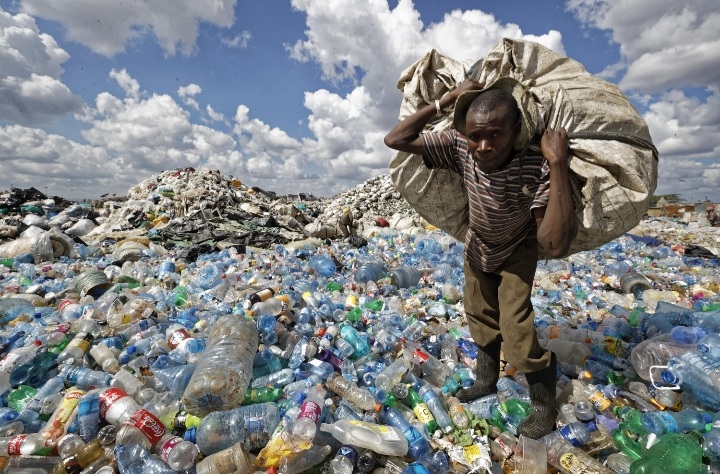Egypt, Algeria tops African countries with highest plastic waste production – Report

By Hauwa Ali
A recent report on World Bank data shows Egypt and Algeria produce more plastic waste than any other country, and when it comes to plastic waste generation, making them the largest producer of plastic waste in the Africa, and they are ranked 14th and 17th, in the world respectively.
The report which was published in the journal Science Advances suggests that the US and UK produce more plastic waste than any other major country.
Top 10 African countries with the highest total plastic waste production, measured in metric tons.
- Egypt – 3,037,675
- Algeria – 2,092,007
- Nigeria – 1,659,502
- South Africa – 1,425,323
- Kenya – 1,279,843
- DR Congo – 1,078,892
- Tanzania – 814,511
- Angola – 651,928
- Uganda – 636,506
- Morocco – 570,102
Rwanda Leads Africa in Plastic Waste Management
Even though as Rwanda did not make it to the top 10 plastic waste production countries, Rwanda remains at the forefront of waste management, earning its capital city, Kigali, “Africa’s cleanest city”.
According to the World Bank Report, Rwanda’s current strong institutional and political will, legal frameworks and citizens active in eliminating plastic pollution foster socio-economic development and environmental protection. The country’s national motto for sustainable environmental management is: “whatever cannot be recycled or reused must not be produced”.
Rwanda’s efforts began with a 2008 ban on manufacture, import, use, and sale of non-biodegradable plastic bags, aimed at minimising the dangers of plastic pollution to humans, farm animals, aquatic life and the environment. The ban was subsequently followed by the outlawing of single-use plastic items, as one of the long-term strategies for becoming a green and climate-resilient nation.
In 2012, as part of supporting the aforementioned laws, Rwanda created the Environment and Climate Change Fund as a cross-sector financing mechanism to achieve the development goals of environmentally sustainable, climate-resilient, and green economic growth.
In 2019, Rwanda passed a transformative law that began phasing out all single-use plastics. The law aims to control the growing habit of unnecessary consumption and disposal of single-use plastic items that became a burden on the environment. The law also imposes stiff fines against users using single-use plastics.
In recent years, the country has taken a step further to make plastic waste an investment opportunity.
The country also has a host of national policies and laws concerning general pollution management: Vision 2020 (2000); Rwanda Green Growth and Climate Resilience Strategy (2011); Regulations of Solid Waste Recycling (2015); and the Law on Environment (48/2018 of 13/08/2018), among others. In addition, there are specific laws or policies that focus directly on plastic waste control in Rwanda. These include Law No. 57/2008 of 10/09/2008 relating to the prohibition of the manufacturing, importation, use and sale of polythene bags in Rwanda (2008) earned the country the status of leading Africa in the fight against plastic pollution.
Plastic waste remains one of the largest environmental concerns we face in the 21st century as the long-term effects continue to wreak slow-but-certain havoc on an environment in multiple ways, devastating communities’ health, the environment, and the ecosystem that millions depend on for their livelihood.
As a signatory to international conventions, Rwanda has adhered to its commitments to achieve ambitious changes in the use, management and disposal of plastics in the country.
Tackling plastic wastes with innovation
Rwanda has also created a dedicated community of innovators in the field of plastic waste management which includes, CareMeBioplastics and Toto Safi, who are both finalists in the Afri-Plastics Challenge.
Small and medium enterprises like these illustrate the growing role for the private sector within the plastic value chain, particularly in the African context where government infrastructure and services are limited, even non-existent in some places.
CareMeBioplastics is involved in the collection and recycling of plastic, using a mobile app to collect the plastics from the end-users and processing the collected plastic, and turning the plastic waste into valuable items such as school desks, and both indoor and outdoor furniture.
Toto Safi’s solution is a reusable cloth diaper service so that parents do not have to choose between convenience and pollution. Through this app, parents will be able to receive a fresh bundle of sterilised and affordable cloth diapers. These two innovators represent the wider activity and commitment that the Rwandan landscape is facilitating. They also demonstrate the importance of public-private partnership in plastic waste management.
